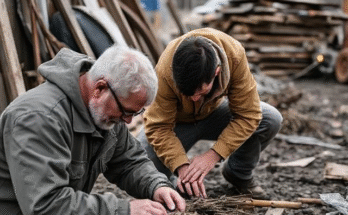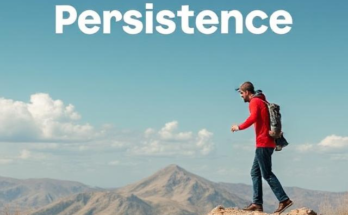Introduction
We sometimes reach crossroads in life where we are forced to make a choice, this way or that. Whether we are making decisions, whether in our careers, relationships, or everyday actions, one guiding principle can help us lead a life that is more purposeful and fulfilling life,
always strive to achieve the highest good. But what does that finally mean, and how can we apply it in our lives?
The highest good is consequently defined as the pursuit of the best not only for ourselves but also for others. It is a moral principle that encourages us to act in integrity, being kind and considerate of other people’s well-being.
The Power of Intentions: Choosing Good Over Easy
The temptation to short-term gain or convenience can sometimes be easy to yield to. Indeed, we are often in a position where situations doing right. Things might be more difficult where an easier option seems more viable at that moment. But the highest good being aimed at, means taking the route to a long-term gain, one that provides positive growth, even if it is difficult.
For example, a student has an important examination. He can either study hard by putting in an effort to really learn and understand or take the easy way out and cheat just to get a grade quickly without earning it.
As much as cheating may be easier in the sense that it is an easy way out and would probably make one solve a problem for that moment, it does not assist in any way in the realization of authentic learning and growth of oneself.
The same principle operates in our relationships, if a friend does something hurtful, the easier option
might be to ignore the problem or just walk away, but the highest good would want us to have an open honest conversation express our feelings in kind ways, and work together to rise above the problem. Over time, this builds healthier, stronger relationships.
Examples of Aiming for the Highest Good in Daily Life
At work: Achieving the highest good may mean giving more effort to finish a task well, even if nobody is looking. It may also involve sharing workload with your colleague who is struggling with it rather than focusing solely on your own work. By doing so, you create a positive work environment and contribute to the success of the team.

In personal health: Committing to exercise regularly, eating healthy food, or sleeping well may seem like sacrifices in the moment, but are actually investments in your long-term well-being.
In focusing on these habits, you are not simply housing your body, but literally building a structure for everlasting energy, mental focus, and body wellness.
A solid, healthy body allows you to achieve the things you want out of life, deal with problems head-on, and live in the moment. But these day-to-day decisions are not the burden; they are the path to the fulfillment and balance we seek.
Community service: Reaching for the highest good is also about offering kindness and support in small and large ways. This can be as small as donating your time, money, food and/or items to those in need or simply helping out a family member, friend or colleague with an encouraging word or two when nails hit the road.
But times are rough all round, and even the most miniscule acts of generosity can have a real difference. So, when we place the needs of others before ourselves,
we create a much more caring and connected world. And through these acts of compassion, we not only ease the burden of another but we sow the seeds of human kindness that encourages others to reach out and lend a helping hand.
Challenges in Pursuing the Highest Good
The path towards the highest good is a glorious yet immensely challenging journey, one that requires us to wrestle with ourselves and the world around us.
A big challenge is agreeing on what the “highest good” actually is — our philosophical, cultural and personal perspectives will all play a role in how we interpret that concept.
Cultural pushback, moral compromise, and personal sacrifice might all challenge the vision of the good life for individuals pursuing it. This may create inner turmoil as the struggle between alternative paths to personal (self-interest) and societal (greater good) goals may eclipse mental steadfastness in achieving long term purpose
The greatest good does not always involve ease. Sometimes the right thing will hurt, and sometimes it’ll be hard, and sometimes it’s going to suck. Maintaining a sense of truth in sticky social situations may come at the expense of your relationships and just not engaging in gossip
while ethically sound — can sometimes make you feel alienated. But difficulty is not only hardship, it is a crucible that will determine our devotion to living a life of integrity. True character is forged not in ease and convenience but in the moments we choose righteousness in spite of its accompanying difficulty. It is in the crucible of tough times that our values are forged and our ability to stand up shines through.
We should not confuse perfectionism with the higher good. Perfection is an ideal; doing the best we can with the knowledge and resources we have is a sentiment that offers both more relevancy and a more achievable pursuit.
As humans we are prone to make mistakes, but how we respond to them is what counts! Growing from our mistakes instead of being discouraged by them. Every time we act with integrity and wisdom, we build our own character while doing good for everybody else. Ultimately, a life of honesty, integrity, responsibility, and ethical living sends waves of positive consequence far beyond the world we can see.
Conclusion
We live with a real sense of purpose as it becomes a habit to strive toward the highest good. Our actions begin to line up with our values, and we become increasingly aware of the impact of our living on other people. Life is not simply about being successful; it is about contributing to the well-being of the people around us, and building a better world.
What a beautiful thing it is to aim for the highest good, in which grand gesture or monumental achievement are not called for. It is in the with the simple day to day decisions we make, the kind words we speak, the help we offer, and the responsibility we take for our actions.



